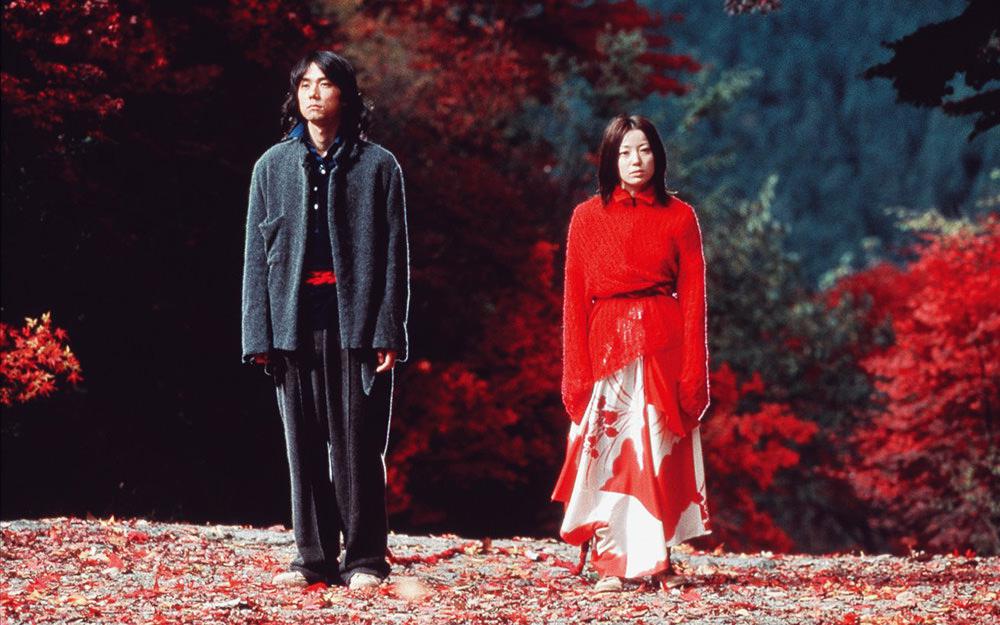
Before going anywhere with this review, there are three things that people need to know. First, this is purely a directorial effort from Kitano. He does not appear in it at all. Second, although one of the major characters is a yakuza crime boss, Dolls is in no way a yakuza film. Third, Kitano is a filmmaker completely unafraid of silence and open space. Unless it’s an outright silent film, you are never going to see a film in which the lead characters have less dialogue than this one.
Early reports on the film drew comparisons between Dolls and Magnolia and though that’s accurate in some respects — both films employ multiple, thematically-linked storylines — it’s also quite misleading. Dolls is a very quiet, subtle film, a meditation on love gone wrong. Kitano tells a trio of stories here, two of which are embedded in the first. The film’s core is the story of Sawako and Matsumoto, a young couple of Japanese lovers engaged to be married despite their poverty.
Things fall apart when Matsumoto is matched up with the daughter of his firm’s owner. Though he initially resists the match, pointing to his prior engagement and the strength of his feelings for Sawako, he eventually yields to the pressure of his parents and the lure of a comfortable life. Matsumoto breaks his engagement with Sawako and enters into a new engagement with his boss’ daughter. The morning of his wedding, two friends arrive at the ceremony, pull him aside, and tell him that Sawako has attempted suicide and is in the hospital.
Feeling horribly guilty, Matsumoto leaves his new bride at the altar and goes to the hospital to see Sawako, now catatonic in her grief. He discharges her from the hospital and makes it his mission in life to care for her even though this costs him his job. The two of them, now homeless, wander throughout the country, tied together at the waist to prevent Sawako from wandering off.
As the couple, now something of a folk legend called the Bound Beggars, moves through the country, Kitano cuts away to tell us the stories of other similarly tragic figures that they come across. The first is of an aging yakuza crime lord slowly coming to the realization that he threw away the best part of his life when he left the lover of his youth to go and make something of himself. Meanwhile, the lover returns weekly to the park where he left so long ago and waits for him to keep his promise and come back to her. The second story deals with a Japanese pop star who has survived a horrible car accident and now lives in seclusion so that nobody can see the damage done to her face, and the adult groupie who has spent years worshipping her from afar.
To say any more about the individual stories would be a disservice to the film, but they are truly haunting and beautiful.
Dolls is a bittersweet, tragic film. Though we’re given absolutely minimal information on the characters, the performances are so strong and subtle that you have no problem believing one hundred percent that these are real people on the screen. Their pain is palpable, as are the bursts of hope and joy that flash throughout. The pacing, though much slower than what North American audiences are used to, is absolutely perfect and the visuals are simply stunning. This got a standing ovation when the closing credits rolled and absolutely deserved it.
Written by Chris Brown.
